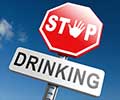Management of diarrhea
Management of acute diarrhea is directed at preventing or treating dehydration that so often accompanies the disease.
Aims of treatment
A. Prevent dehydration from occurring
B. Treat dehydration quickly
C. Feed the child
Treatment of a child with diarrhea is based on presence or absence of dehydration and severity of dehydration. Watery diarrhea requires replacement of fluid and electrolytes
Feeding should be continued to the greatest extent possible and should be increased during convalescence.
a) Usage of oral rehydration therapy (ORT)
b) Continued feeding during and after diarrhea
c) Selective use of intravenous fluids
d) Selective use of anti microbial agents and other drugs.
-
ORT is as effective as intravenous therapy in rehydrating and replacing electrolytes in children with some dehydration and should be the therapy of choice.
Treatment Plan A
Treatment of a child with diarrhea with no signs of dehydration
-
More fluids than normal should be given to the child to prevent dehydration. Home made fluids like rice water, coconut water. Vegetable soups, or yogurt should be given. Aerated cola drinks, sweetened commercial fruit drinks, and large amounts of glucose should be avoided and can cause osmotic diarrhea. Fluids may be given by spoon, or small sips from tumbler. As long as signs and symptoms of malabsorption do not develop during the treatment period, it is not necessary to with hold full strength milk or other dairy products. The routine use of lactose-free formulas does not lessen the recovery time. Use of ORT has revolutionized the management of acute diarrhea.
-
Constituents of WHO ORS are:
-
Sodium chloride: 3.5 gm,
-
Sodium bicarbonate: 2.5 gm,
-
Potassium chloride: 1.5 gm and
-
Glucose : 20 gm in one liter of water.
Amount of ORS that should be offered to child
-
The mother can be taught to prepare sugar-salt solution, which may be offered to the child.
-
Method of preparation - 3 finger pinch of salt up to the first crease is to be added to a closed fistful of sugar in half liter water. In severe or prolonged diarrhea, rice-based ORS* should be tried. It is well accepted and improved the nutrition of the child.
-
In mild cases diarrhea and vomiting are generally controlled with the above measures and dehydration does not develop.
II. The popular belief is that food should be restricted or stopped during diarrhea. This is contrary to the guidelines of WHO. The child should be offered plenty of food that is high in nutrients and calories to prevent malnutrition. Mother must continue breast-feeding frequently if the infant is being breast-fed. Mixes of cereals and beans, fresh fruit juice and bananas may be offered. Food should be hygienically prepared, well cooked and offered frequently (every 3 or 4 hours). Once diarrhea stops child should be given an extra meal each day for a week to reach the pre illness weight.
III. The danger signs should be explained to mother and she should be asked to report if these develop. They are:
-
High rates of purging
-
Excess thirst
-
Sunken eyes
-
Fever
-
Refusal to eat or drink
-
Dysentery
-
Reduced urination
-
Seizures
Treatment Plan B
Child with some dehydration
Child should be treated with ORT. Even children who are vomiting can be successfully treated with ORT.
Encourage mother to breast feed her infant. Instructions regarding the preparation of ORS should be explained. It should be offered as frequent sips or spoon every 1-2 minute.
-
If the child vomits, wait for ten minutes and then continue to give ORS.
-
If the child becomes puffy, stop ORS and give plain water and ORS. Reassess the
Age <2 years > 2 years Older child
ORS (ml)/ 50-100 100-200 Ad lib per loose stool
Amount of ORS to be given in the first four hours:
Age <4 mo 4 mo-1 yr 1-2 yrs 2-4 yrs 5-14 yrs >14 yrs Wt (Kg) <5 5-8 8-11 11-16 16-30 > 30
Quantity (ml) 200-400 400-600 600-800 800-1200 1200-2200 2200-4000
-
Child after four hours for hydration status,
-
Select plan A, B or C to continue treatment.
Treatment Plan C
Child with severe dehydration
As severe dehydration is a medical emergency it should be treated quickly with intravenous fluids.
Start intravenous fluids immediately. Ringer Lactate or 0.9% Normal Saline is the fluid of choice and it should be given as 100 ml/kg divided as follows:
Age < 12 months > 12 months
First 30 ml/hr Over 1 hour Over 5 hours
Then 70 ml/hr Over 30 min Over 21/2 hours
There is no role for routine anti biotics in therapy of diarrhea in children. Anti emetics, anti-diarrheals and anti motility drugs should not be used.
Reassess the child every 1 hour and if the hydration is not improving then give the infusion more rapidly. Dextrose containing fluids should never be used during this initial rehydration as it may worsen the dehydration. If the child can drink give ORS orally while the infusion is being set up. Give ORS as 5 ml/kg /hr as soon as the child can drink.
Reassess the patient after 6 hours (infant) or 3 hours (Child) for the hydration status and choose plan A, B or C for further treatment. If intravenous access cannot be obtained in a timely manner, administration of ORS via nasogastric tube may be considered, provided the child is conscious and ileus is ruled out. It is given as 20 ml/kg/hr. When needed an intraosseous line may be used in a child below 6 years.
Observe the child for at least 6 hours after rehydration to be sure that the mother can maintain hydration by giving ORS. If the child is above 2 years and there is cholera in that locality, give an appropriate oral antibiotic after the child is alert.
Rational use of drugs in the treatment of diarrhea:
Antimicrobials and anti parasitic agents should not be routinely used as most episodes of diarrhea are self-limiting and do not benefit from such treatment.
Antimicrobials are indicated in:
1. Dysentery
2. Suspected cholera with severe dehydration
3. Persistent diarrhea, when trophozoites/cysts or Giardia or trophozoites of E.histolytica are detected in feces.
Empiric antibiotic therapy may even lead to development of Clostridium difficile associated enterocolitis and worsening of symptoms.
Antimotility drugs such as diphenoxylate and loperamide should not be used in children, as they may be harmful. They delay the elimination of the organisms that cause diarrhea and can prolong illness. Other antimicrobials (neomycin and non absorbable sulfonamides) and Pectin, kaolin and activated charcoal are also ineffective.





Comments
I have 22 days old son and he is having diarrhea from last 12 days. we consulted doc. he gave zinc drops & last time multi vit drops. but my baby still suffers problem of diarrhea. its like, he is given feeding at aprox 2 hrs interval, he sucks properly & sucks for 15-20 min but after completing food he does toilet, every time.
so please give some advise..